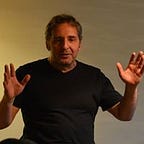State whistleblowers becoming international pawns while seeking safe harbour on foreign shores?
A month after a high court judge denied a US request for extraditing Julian Assange, while refusing his request to be released on bail, Mrs Anna Ardin (a.k.a. the Swedish Mrs. A) publishes a new tell-all, “In the Shadow of Assange: My Testimony”. Here’s a short update.
Julian Assange, the Australian born founder of WikiLeaks, was accused of sexually assaulting Mrs. Ardin in 2010 when he stayed at her apartment. This charge has since been dropped by the Swedish authorities, but is widely believed to be part of an effort of the United States to force his extradition back to the states, where he is to face hacking and espionage charges.
As an accomplice in an act of whistleblowing against a state, he has been forced to seek protection from various other states. After exhausting the good will of the Ecuadorians, he is now at the mercy of the British legal system.
Aren’t whistleblowers offered protections? Isn’t this something we, as a society, are trying to advocate for?
True. Most democratic states have protection laws on the books, providing safe harbour for whistleblowers. These are needed as a whistleblower will naturally be attacked by the organisation its wrongdoing he or she tries to expose. These laws, and the associated protection mechanisms are therefore provided by the state.
The situation gets complicated when the exposed organisation is a state by itself. Such cases may be considered as acts of treason rather than heroism. The state, as any other exposed organisation will naturally fight back. In this case, how can protection be provided? Or more so, should it be provided?
This seems like quite an awkward situation. How common is it?
Well, take the case of Edward Snowden, an American whistleblower. “Most Wanted” in the US, he now resides under the protection of Russia in Moscow. On the one hand, the information he provided has raised awareness of how each one of us is monitored by state agencies and has affected laws and operational procedures — it has made a massive contribution to our privacy and freedom of speech. On the other hand, he is kept at the mercy of Putin, as part of a diplomatic balance of power between the US and Russia — the same Russia that has just jailed Alexei Navalny, basically for opposing its autocratic ruler — not the most democratic of acts.
Remember that the decision not to extradite Assange was predicated on the likelihood of him not being able to withstand the conditions of US special measures and prisons. It was not denied on the basis of providing him whistleblower protection.
Had Snowden fled to the UK, given his composed state, would he be provided with safe harbour here?
It’s hard to tell. Still, one can fall back on the case of Katharine Gun, a GCHQ linguist, who in 2003 leaked a top secret document, regarding questionable requests by US intelligence, to The Observer. For this act of whistleblowing against the state she was prosecuted in 2004. At the opening of her trial she pleaded not guilty, saying she did it to “prevent imminent loss of life in a war she considered illegal”.
Surprisingly, the prosecution refused to offer any evidence to support the charges, thereby leading to the case being dropped and Mrs. Gun released uncharged. Was this a case of protection for a whistleblower or merely a convenient path for the state to keep its operations under wraps? We’ll never know. Still, the case offered some hope.
And as to Mrs. Ardin, does publishing the book mean she is interested in further pursuing her case against Assange?
Ms Ardin has said that although she defined her treatment as sexual abuse, others might call it a “grey zone”. As charges against Assange were dropped by the Swedish authorities, citing difficulties to prosecute the case, her only recourse at this time might be a civil suit.
Still, as a church deacon, she might be tempted to put this ordeal behind her now and leave Mr Assange in the hands of God, Queen and country.
